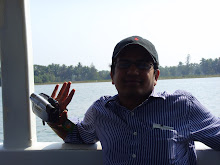Internet Censorship
Thursday, March 15, 2007
Internet censorship is spreading rapidly, being practised by about two dozen countries and applied to a far wider range of online information and applications, according to research by a transatlantic group of academics.
The warning comes a week after a Turkish court ordered the blocking of YouTube to silence offensive comments about Mustafa Kemal Ataturk, the founder of modern Turkey, marking the most visible attack yet on a website that has been widely adopted around the world.
OpenNet Initiative, a project by Harvard Law School and the universities of Toronto, Cambridge and Oxford, repeatedly tried to call up specific websites from 1,000 international news and other sites in the countries concerned, and a selection of local-language sites.
The research found a trend towards censorship or, as John Palfrey, executive director of Harvard Law School’s Berkman Center for Internet and Society, said, “a big trend in the reverse direction”, with many countries recently starting to adopt forms of online censorship.
Ronald Deibert, associate professor of political science at the University of Toronto, said 10 countries had become “pervasive blockers”, regularly preventing their citizens seeing a range of online material. These included China, Iran, Saudi Arabia, Tunisia, Burma and Uzbekistan.
New censorship techniques include the periodic barring of complete applications, such as China’s block on Wikipedia or Pakistan’s ban on Google’s blogging service, and the use of more advanced technologies such as “keyword filtering”, which is used to track down material by identifying sensitive words.
Methods such as these are being copied as countries new to censorship learn from those with more experience. “There’s a growing awareness of best practice – or rather, worst practice,” Mr Deibert said.
Ken Berman, head of technology for the US state department arm that broadcasts Voice of America, said some countries were learning from China, which has the most experience in internet censorship, with Zimbabwe appearing to use the same technology.
While internet censors are learning to apply new technologies to expand their efforts, activists wanting to circumvent the controls are using the latest internet methods to advantage.

0 comments:
Post a Comment